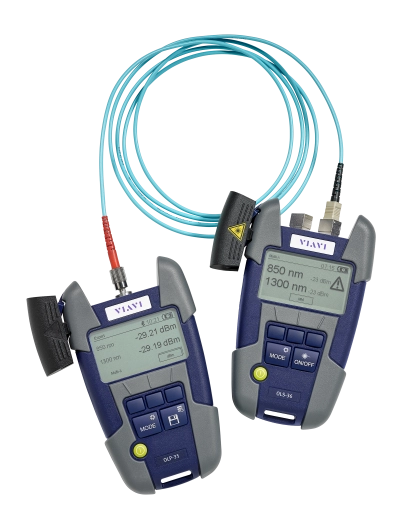All You Required to Find Out About Robotic Vision and Its Applications in Advanced Optical Measurement Systems
Robotic vision represents a substantial improvement in the intersection of computer system vision, expert system, and equipment knowing. This innovation improves the accuracy of optical dimension systems, making it possible for real-time data evaluation and boosted high quality control. Its influence spans multiple sectors, from manufacturing to medical care. The evolving landscape of robot vision raises inquiries concerning future abilities and applications. What innovations lie ahead in this transformative area?
Comprehending Robotic Vision: Secret Concepts and Technologies
Robotic vision encompasses the technologies and methods that make it possible for devices to analyze and comprehend visual details from their setting. This area integrates elements of computer vision, synthetic intelligence, and artificial intelligence to assist in automatic decision-making based upon visual information. Secret ideas include photo processing, which entails the improvement and analysis of images to extract purposeful attributes, and object acknowledgment, which permits machines to identify and classify objects within a scene.

The Assimilation of Robotic Vision With Optical Measurement Equipments
As sectors significantly demand accuracy and performance, the integration of robot vision with optical measurement systems has actually become a transformative approach. This synergy allows robots to perceive and interpret their environments, enhancing the capability of optical dimension systems to examine and evaluate items with unparalleled accuracy. By furnishing optical sensing units with advanced imaging technologies, robotic vision makes it possible for real-time information collection and handling, helping with prompt adjustments to measurement parameters.
The combination empowers automated systems to find variants in measurements, surface quality, and positioning, which are critical in high quality control procedures. Enhanced formulas, such as artificial intelligence, more boost this combination by improving the systems' ability to adapt to different environments and scenarios. The integration not only streamlines measurement processes but additionally minimizes errors, ensuring that items satisfy rigorous sector requirements, thus solidifying the duty of robotic vision in the future of optical measurement systems.
Applications of Robotic Vision in Manufacturing
In modern production atmospheres, making use of vision systems has actually reinvented production processes by enabling devices to do tasks with impressive precision and speed. Robotic vision systems are increasingly used for quality assurance, where they evaluate products for issues and assurance adherence to requirements. These systems use video cameras and progressed algorithms to assess products in real-time, considerably lowering the risk of human error.
Additionally, robot vision facilitates automation in setting up lines, enabling robotics to precisely identify components and construct them with marginal downtime. This innovation additionally boosts inventory administration, as vision systems can monitor stock degrees and discover discrepancies, guaranteeing a seamless supply chain.
Additionally, robot vision help in the application of clever manufacturing facilities, where data from vision systems can be incorporated with various other modern technologies to maximize operations. Generally, the applications of robotic vision in making demonstrate its crucial role in improving efficiency, high quality, and productivity throughout various sectors
Robotic Vision in Medical Care: Revolutionizing Patient Treatment

In rehab, robot vision help in keeping track of person progress and tailoring therapy sessions to specific needs. It supports medical experts by automating tasks such as data collection and person monitoring, permitting for more time to focus on direct patient communication. In addition, robot vision boosts telemedicine by allowing remote diagnosis and digital appointments, linking the void between people and doctor. In general, the application of robotic vision in medical care is reinventing individual care, leading to boosted outcomes, performance, and individual complete satisfaction.
Future Trends and Growths in Robotic Vision Innovation
The rapid development of robotic vision modern technology assures to even more improve its applications throughout right here numerous fields, consisting of healthcare. Future trends suggest a significant change towards integrating expert system and equipment learning, making it possible for systems to pick up from substantial datasets and improve precision gradually. Enhanced sensor modern technologies and deep learning formulas are anticipated to refine things recognition capabilities, allowing robots to analyze complex settings more successfully.

Moreover, the combination of increased truth (AR) with robot vision will likely revolutionize exactly how robotics aid in procedures and diagnostics. This harmony will certainly assist in real-time information visualization, improving decision-making processes. In addition, miniaturization of parts will certainly bring about more portable and versatile robotic vision systems appropriate for a range of jobs. As these advancements unfold, markets will certainly witness enhanced automation and performance, solidifying robotic vision as a cornerstone of innovative technological services.
Often Asked Concerns
What Are the Main Components of a Robotic Vision System?
The major elements of a robotic vision system include electronic cameras for image capture, cpus for data evaluation, algorithms for interpretation, and actuators for movement. With each other, these elements allow robots to view and communicate with their environment properly.
Exactly How Does Robotic Vision Improve Accuracy in Measurements?
Robotic vision improves dimension precision by using advanced imaging modern technologies, making it possible for accurate things detection and spatial evaluation. This capability lowers human error, boosts repeatability, and permits real-time modifications, eventually enhancing general measurement integrity recommended you read and effectiveness.
What Industries Benefit Most From Robotic Vision Modern Technology?
Various industries benefit considerably from robot vision technology, consisting of production, health care, farming, and logistics. These sectors use boosted accuracy, performance, and automation, resulting in improved performance and reduced functional prices in their corresponding procedures.
Can Robotic Vision Equipments Work in Low-Light Issues?
Robotic vision systems can indeed operate in low-light problems, utilizing innovative sensors and formulas to boost photo clarity. This capability permits them to execute efficiently in various see this environments, including commercial and security applications, despite marginal lighting.
What Are the Prices Related To Executing Robotic Vision?
The prices connected with implementing robotic vision vary significantly, affected by components such as electronic cameras, software, and assimilation. Extra expenditures consist of maintenance, training personnel, and possible upgrades to existing systems, which can collect in time.